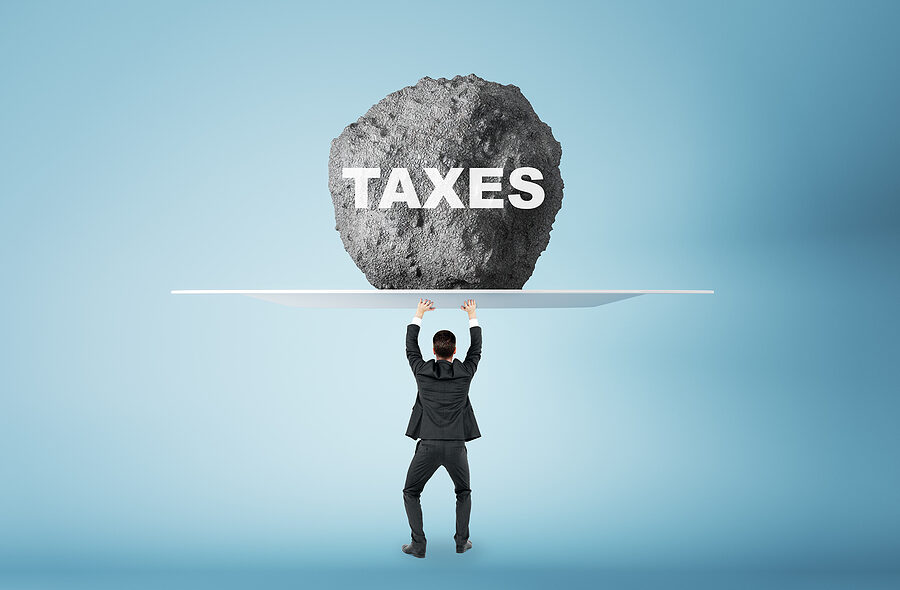Tax debt is one of the few forms of debt that is not always easily erased in a consumer bankruptcy case. While it is true that discharging tax debt can be difficult in a bankruptcy case, it is not impossible. Ultimately, it depends on the type of bankruptcy being pursued and the type of debt involved as to how it is handled.
While a bankruptcy filing normally puts an immediate halt to all collection actions on debt through the automatic stay, tax debt is treated differently.
Tax debt is treated as a “nondischargeable priority debt” in a bankruptcy case. What this means is the bankruptcy case will not eliminate the debt, and repayment of the debt is given priority over all other creditor claims. However, certain conditions do exist where the filer can have his or her tax debt discharged.
First, the tax debt must be income tax debt in order to be discharged, including both unpaid federal and state income tax debt. Additionally, the tax debt cannot be too new, meaning it must be older than three years. Lastly, the filer must have filed a valid tax return for the debt for at least two years prior to filing for bankruptcy. The tax return must also have been filed in a timely manner. The IRS must also have recorded the debt for at least 240 days prior to filing for bankruptcy, and the IRS must not have filed a tax lien on the person’s assets.
The best form of bankruptcy for discharging tax debt is often Chapter 13 bankruptcy, according to the IRS. This type of bankruptcy is also known as reorganization or repayment bankruptcy, and it involves the filer working with the bankruptcy trustee on a plan to pay off debts over a period of three to five years. At the end of the repayment period, tax debts that are paid off under the plan and any tax debts that are older than three years at the time of the filing will be discharged. However, during the repayment period, the filer must continue to pay his or her taxes on time.
Interest and penalties on past due tax debt may continue to be charged during a Chapter 13 case, but old interest and penalties on debts that are older than three years old may be dischargeable at the end of the case.
Chapter 7 bankruptcy, also known as liquidation bankruptcy, may be a successful way for a consumer to discharge tax debt if the individual’s assets are minimal and the debt involved is older than three years. These types of bankruptcy cases are significantly shorter than Chapter 13 bankruptcy, and they allow the filer to receive a successful discharge of the old tax debt, penalties, and interest. Like Chapter 13 bankruptcy, the filer must continue to pay on current income taxes, and any debt that is not three years or older will not be discharged.
Federal income taxes may be discharged in a Chapter 7 bankruptcy if the following conditions are met.
- Only personal income taxes may be discharged through bankruptcy. Business payroll taxes and penalties for tax fraud may not be discharged.
- The filer did not commit willful tax evasion or tax fraud.
- The tax debt must have been assessed at least 240 days before the bankruptcy petition is filed.
- The debtor filed a tax return for the relevant tax years at least two years before filing for bankruptcy.
- The past tax debt is at least three years old.
Prior to filing bankruptcy, it is advisable to speak with an experienced bankruptcy attorney. In certain situations, it may be wise to hold off on filing for bankruptcy, especially if the tax debt involved is close to the three-year mark.
Click here to read more.
If you have questions on this topic or are in financial crisis and considering filing for bankruptcy, contact an experienced Miami bankruptcy attorney who can advise you of all of your options. As an experienced CPA as well as a proven bankruptcy lawyer, Timothy Kingcade knows how to help clients take full advantage of the bankruptcy laws to protect their assets and get successful results. Since 1996 Kingcade Garcia McMaken has been helping people from all walks of life build a better tomorrow. Our attorneys’ help thousands of people every year take advantage of their rights under bankruptcy protection to restart, rebuild and recover. The day you hire our firm, we will contact your creditors to stop the harassment. You can also find useful consumer information on the Kingcade Garcia McMaken website at www.miamibankruptcy.com.
Related Resources:
Reducing Tax Debt through Bankruptcy | Kingcade Garcia McMaken | (miamibankruptcy.com)

